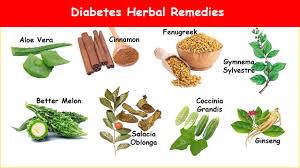**Herbal Remedies for Diabetes Management in Ghana**
Diabetes is a growing health concern worldwide, including Ghana, where the prevalence of the condition is on the rise. In response, many individuals and communities are turning to herbal remedies as part of their management strategies. This approach is rooted in Ghana's rich tradition of herbal medicine, which leverages indigenous plants for therapeutic purposes. Here, we explore some popular herbal remedies for diabetes and discuss how they can be integrated into diabetes management in Ghana.
### Common Herbal Remedies for Diabetes
1. **Moringa (Moringa oleifera)**:
Known locally as "Zogale" or "Moringa," this plant is highly regarded for its medicinal properties. Research suggests that moringa leaves can help lower blood sugar levels, improve insulin sensitivity, and provide essential nutrients that support overall health. In Ghana, moringa is commonly consumed in the form of leaves added to soups or as a dried powder.
2. **Bitter Kola (Garcinia kola)**:
Bitter kola, or "Orogbo," is another widely used herb in Ghanaian traditional medicine. It has been traditionally used to manage diabetes due to its potential to lower blood glucose levels and improve glucose tolerance. Bitter kola can be chewed or taken as a decoction. Its use, however, should be monitored, as excessive consumption may have side effects.
3. **Guava Leaves (Psidium guajava)**:
Guava leaves are used in Ghanaian herbal medicine for their hypoglycemic properties. The leaves are often brewed into a tea or used in other preparations. Studies have shown that guava leaf extracts may help regulate blood sugar levels and improve overall glucose metabolism.
4. **Cinnamon (Cinnamomum verum)**:
While not native to Ghana, cinnamon is widely used in many traditional practices for its potential to improve insulin sensitivity and lower blood sugar levels. It can be added to various dishes or taken as a tea. Its use is supported by some research, although it is less commonly used in Ghanaian traditional medicine compared to other local herbs.
### Integrating Herbal Remedies into Diabetes Management
**Consultation with Healthcare Providers**:
Before incorporating any herbal remedies into a diabetes management plan, it is crucial to consult with healthcare professionals. This ensures that the herbs do not interfere with prescribed medications or medical treatments and helps in determining appropriate dosages.
**Adherence to Dosage Recommendations**:
Herbal remedies can have varying effects based on dosage and individual health conditions. Accurate dosing and adherence to traditional preparation methods are essential for effectiveness and safety. Consulting with a trained herbalist can help in understanding the right dosages and preparation methods.
**Combining Herbal Remedies with Conventional Treatments**:
Herbal remedies should not replace conventional diabetes treatments but can complement them. A balanced approach that includes medication, diet, exercise, and herbal treatments can offer a holistic approach to managing diabetes.
**Monitoring and Evaluation**:
Regular monitoring of blood sugar levels is vital when using herbal remedies. This helps track the effectiveness of the herbal treatments and adjust the management plan as needed. Regular check-ups with healthcare providers are important to assess overall health and manage any potential side effects.
**Diet and Lifestyle**:
Incorporating a healthy diet and lifestyle changes is crucial for diabetes management. Herbal remedies should be part of a broader strategy that includes a balanced diet rich in fruits, vegetables, whole grains, and lean proteins, along with regular physical activity.
### Conclusion
Herbal remedies offer promising options for managing diabetes in Ghana, given the country's rich tradition of using medicinal plants. Remedies like moringa, bitter kola, guava leaves, and cinnamon have shown potential in supporting blood sugar control. However, it is essential to approach these remedies with caution, combining them with conventional treatments and maintaining close supervision by healthcare professionals. By integrating these herbal options thoughtfully, individuals in Ghana can enhance their diabetes management and improve their overall well-being.


